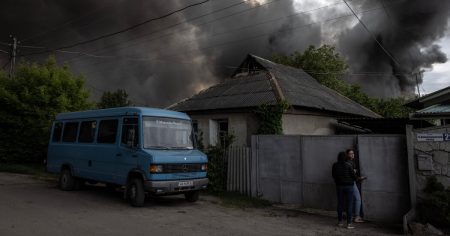Conservatives are pushing for secession once again, this time in Louisiana where a largely white enclave within Baton Rouge has been granted approval to form its own city named St. George. The effort to separate from Baton Rouge started in 2012 when a group of white conservatives claimed they needed a separate school district due to issues with crime and poor school quality. After failing to establish the school district, they pursued creating a new city instead, which was finally approved by the Louisiana Supreme Court after a long legal battle.
Critics in Baton Rouge have denounced the court ruling, warning that the new city of St. George could deprive nearby communities of the revenue needed to run local services. Opponents are seeking another hearing on the matter from the state Supreme Court. Proponents of St. George have suggested cutting Baton Rouge’s public transit system to fund subsidies for Uber and Lyft drivers, aligning with conservatives’ agenda of privatization and divestment from public services. The increase in secession plans like this one in recent decades is concerning.
A conservative-led plan to separate the largely white neighborhood of Buckhead from Atlanta was halted last year, and studies have shown that successful efforts by predominantly white areas to form independent school districts have worsened school segregation in states like Alabama, Tennessee, and Louisiana. These secession plans appear to be aimed at taking resources away from communities that promote diversity and multiracial democracy, in favor of establishing white-dominated fiefdoms with more power and control.
Secession efforts like the one in St. George highlight the ongoing challenges and tensions around racial and economic inequality in the United States. The push to carve out separate enclaves for wealthy white residents reflects a broader trend of privatization and disinvestment in public services, particularly in communities with higher populations of people of color. Critics argue that these efforts to create exclusive, predominantly white communities come at the expense of more diverse neighboring areas, exacerbating social and economic disparities.
The debate over secession and the formation of new, exclusive cities underscores deeper issues of systemic racism and unequal access to resources and opportunities in American society. Critics of these efforts point to the potential for increased segregation and inequality, as well as the perpetuation of racial and economic divides. The fight against secession in places like Baton Rouge and Atlanta reflects a larger struggle for social justice and equity in the face of persistent efforts to prioritize the interests of a privileged few over the well-being of the broader community.
In conclusion, the resurgence of secession efforts driven by conservative agendas raises important questions about racial and economic justice, community investment, and the core values of democracy in the United States. The push to create exclusive, white-dominated enclaves like St. George reflects broader currents of privatization and divestment from public services, raising concerns about the impact on marginalized communities and the erosion of inclusive, multiracial democracy. Critics continue to challenge these divisive initiatives, advocating for more equitable, inclusive approaches to community development and social progress.















